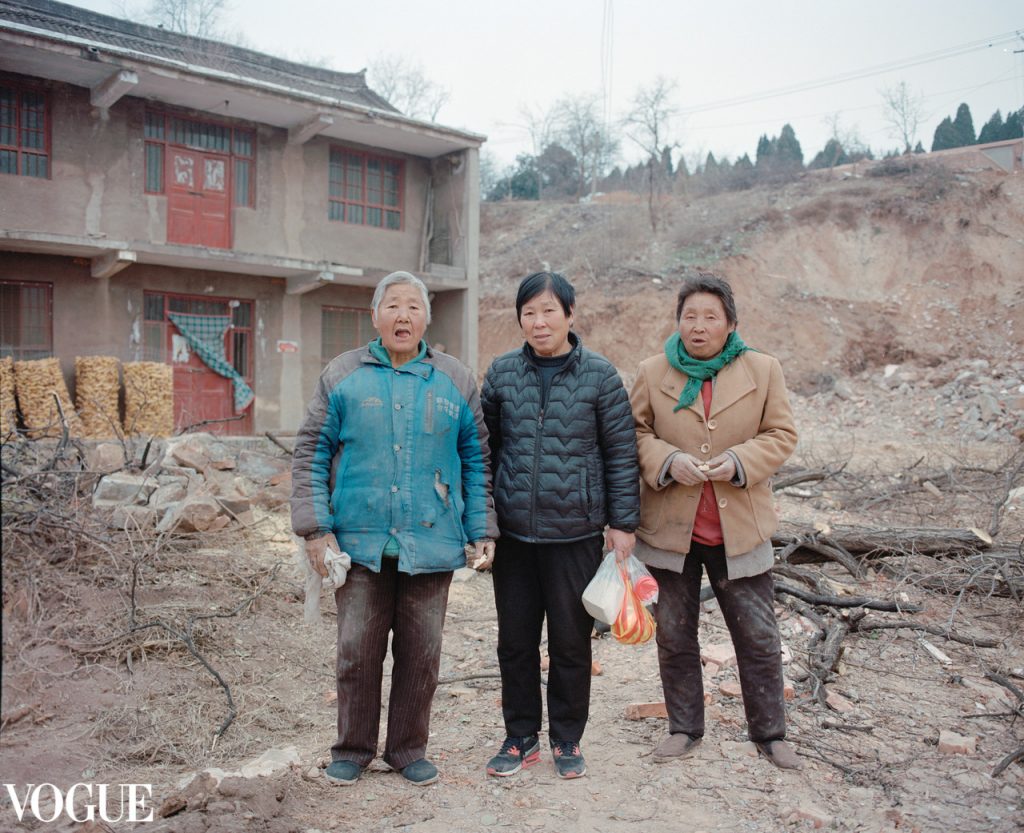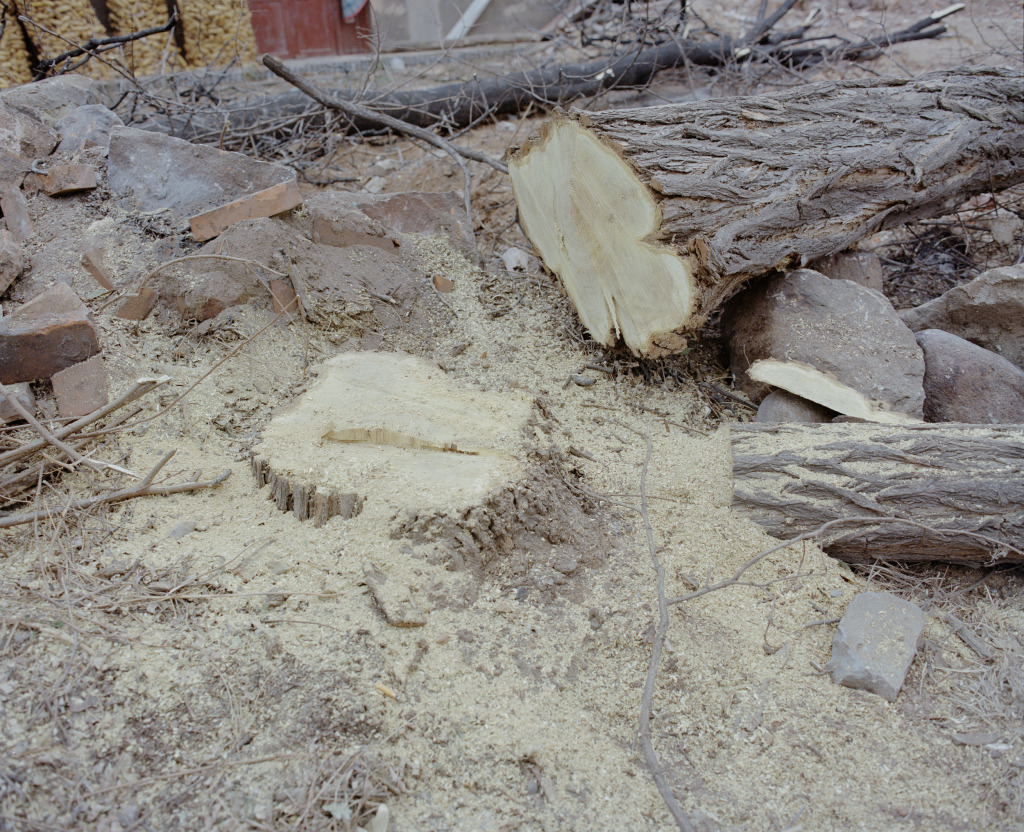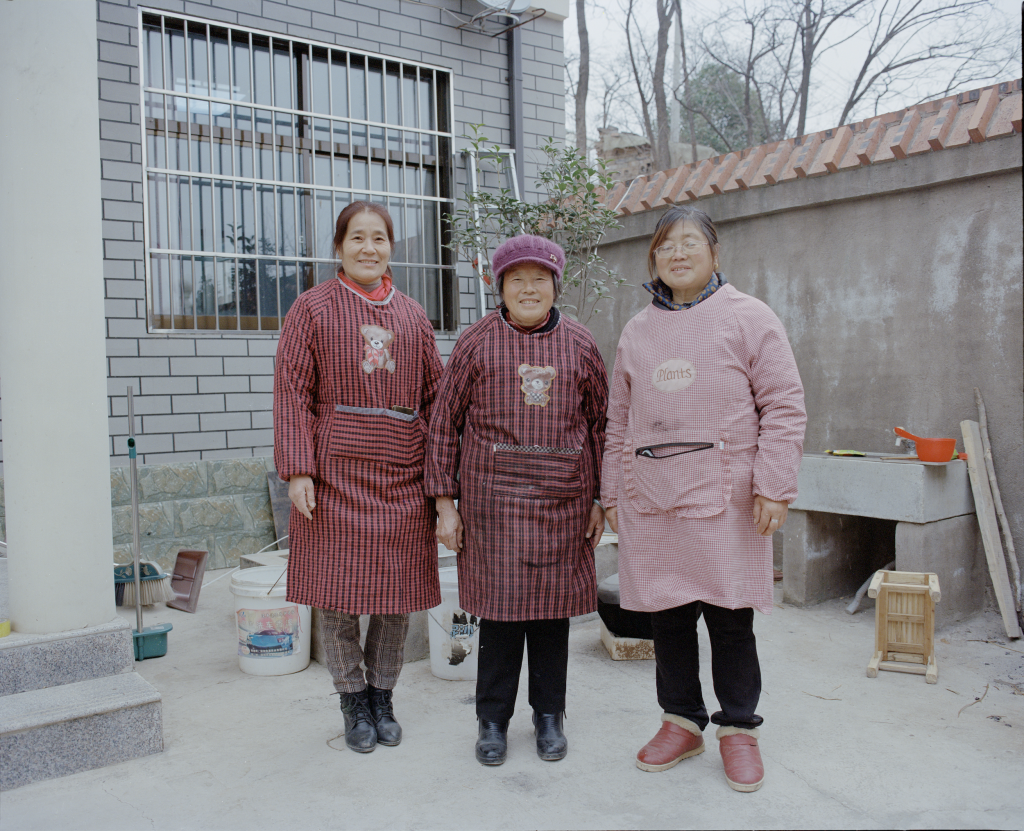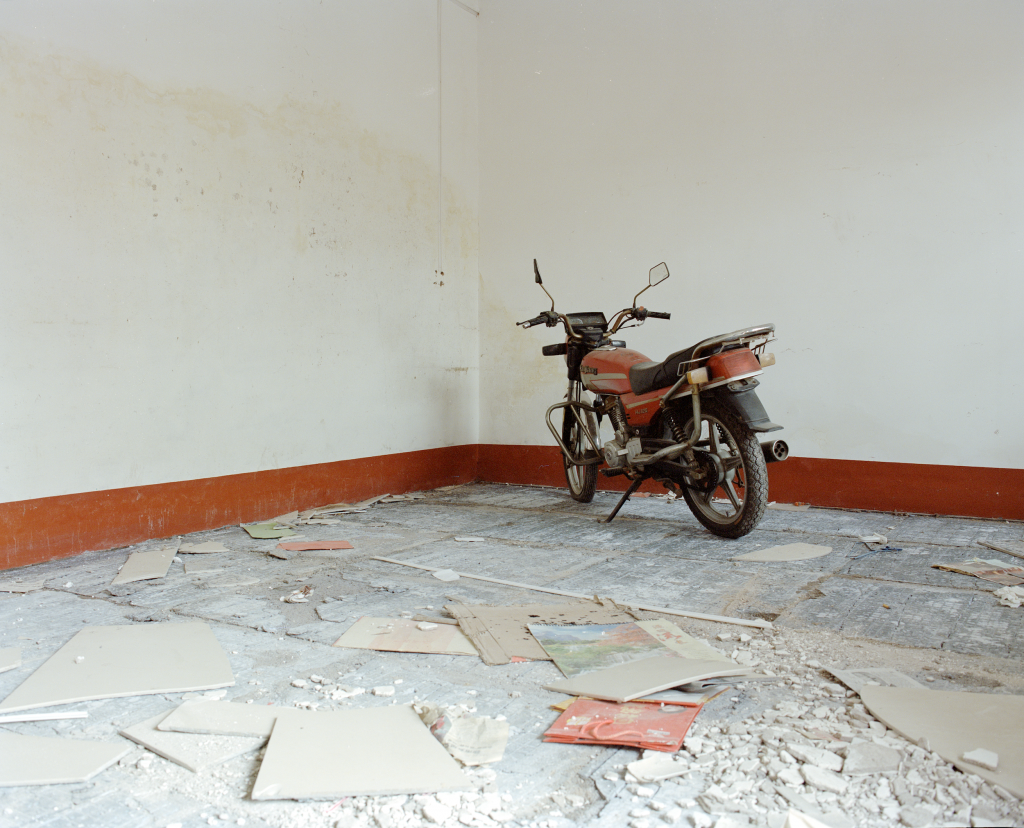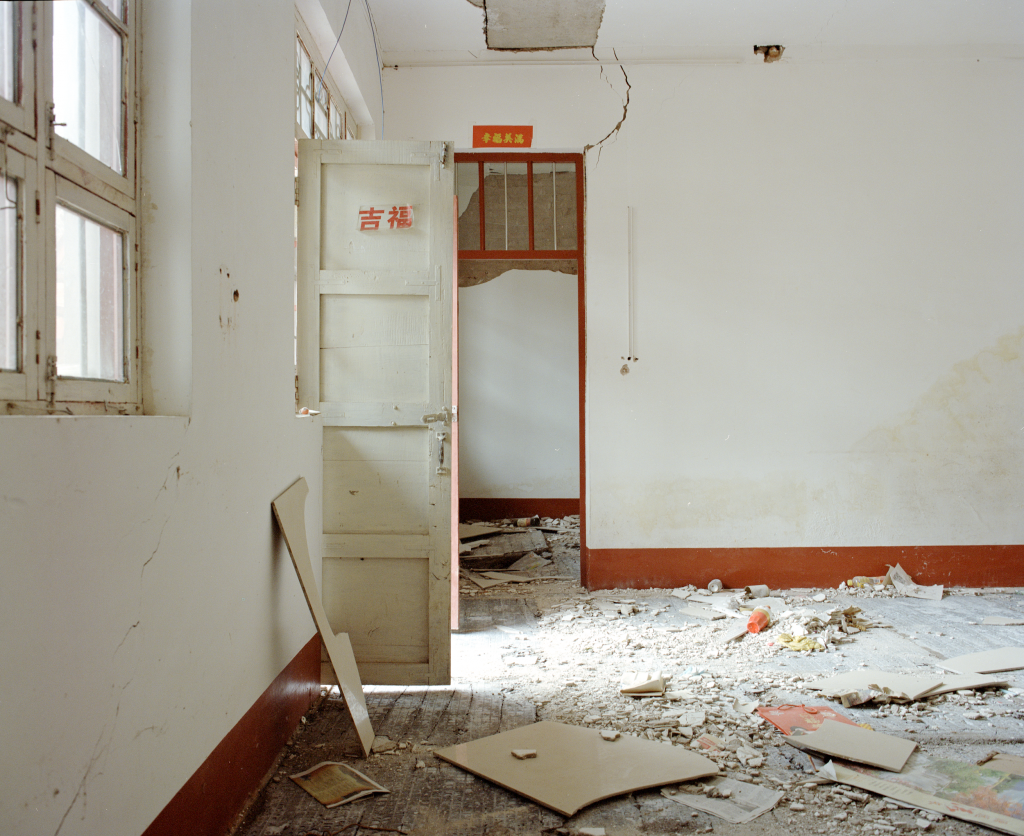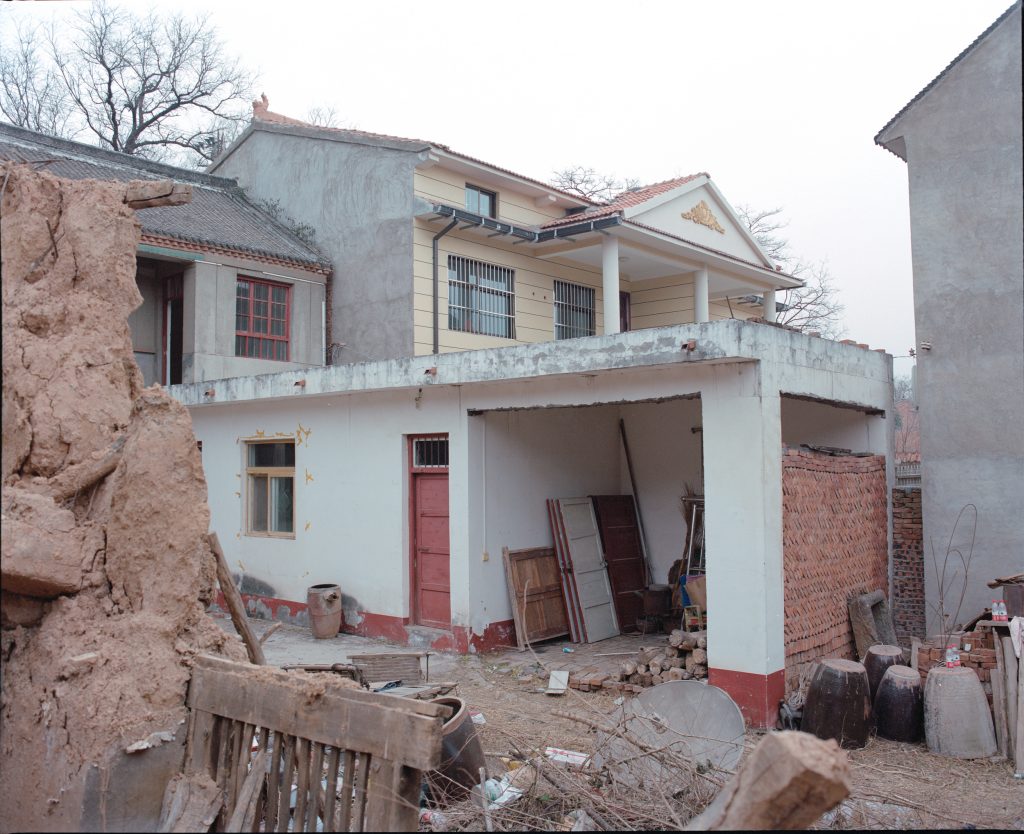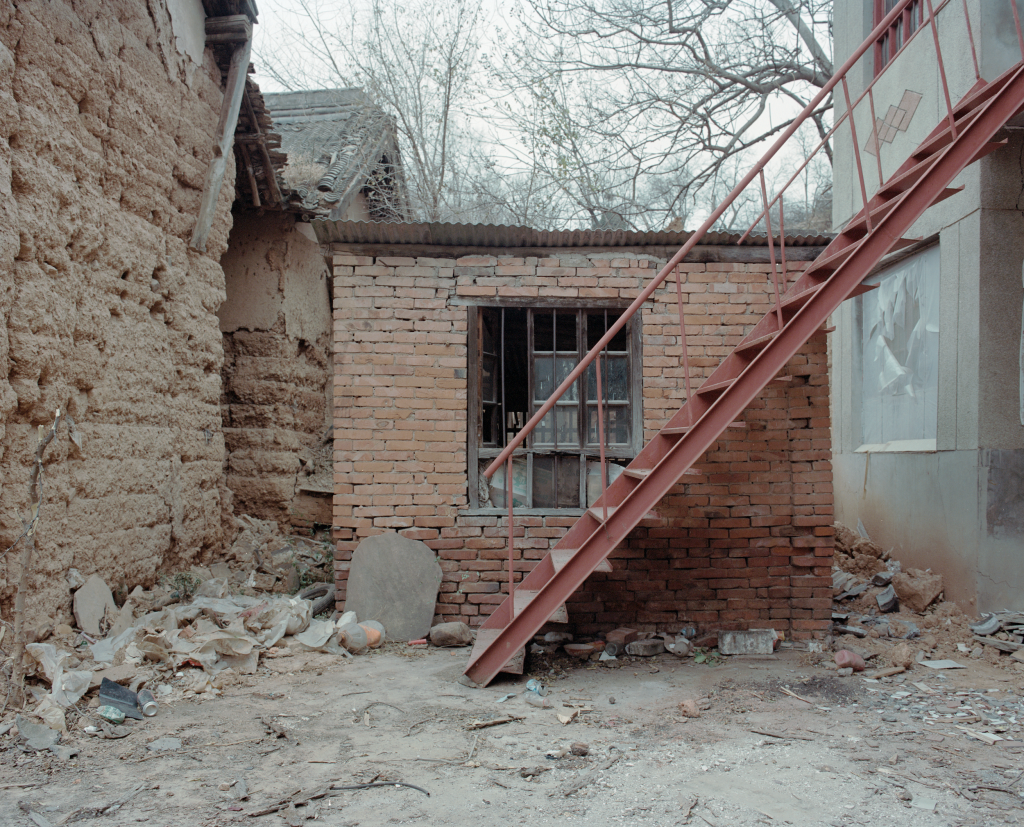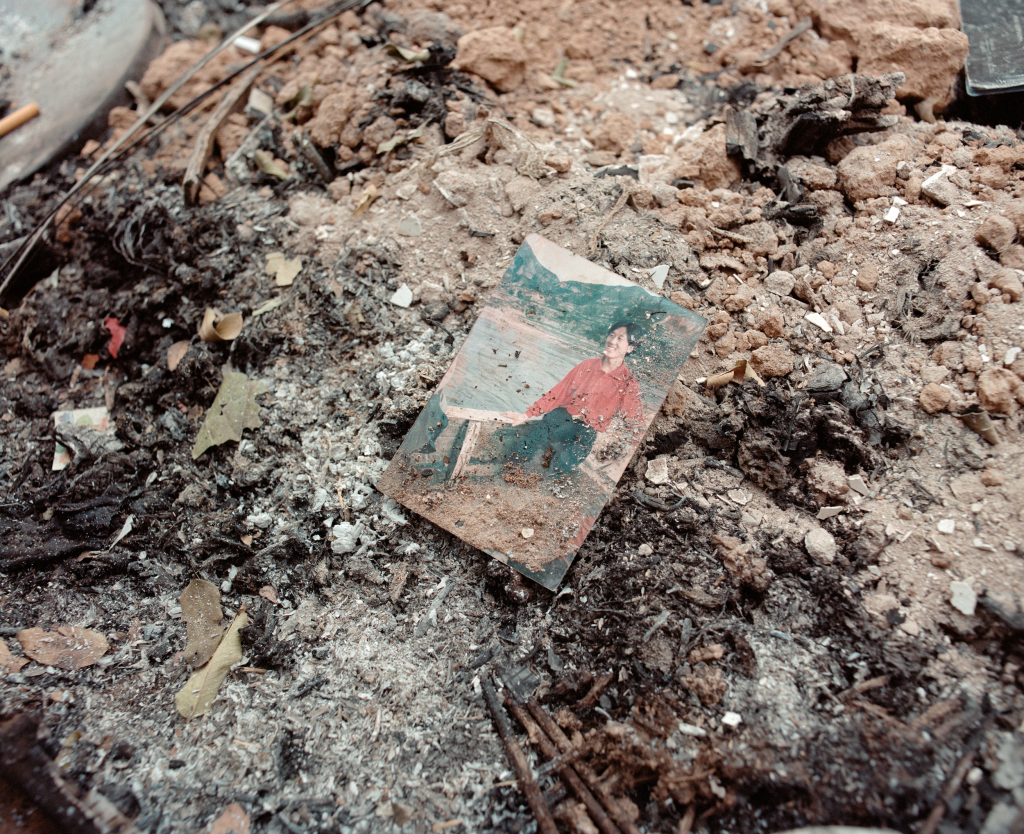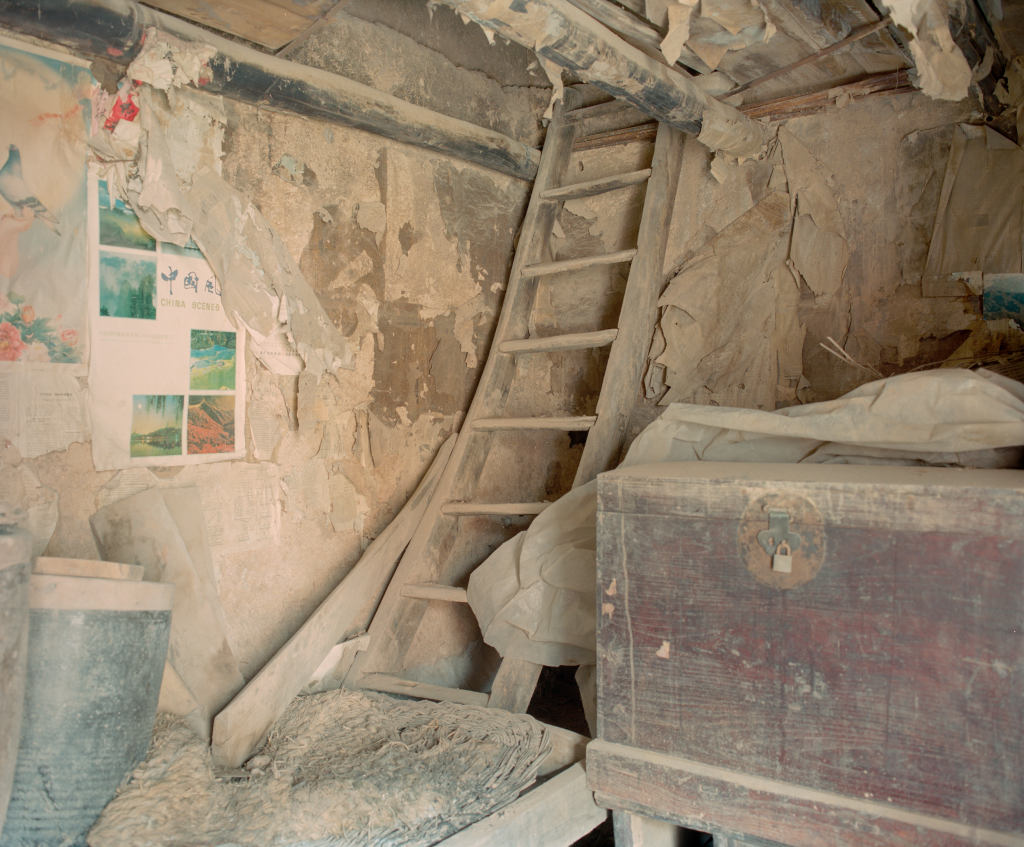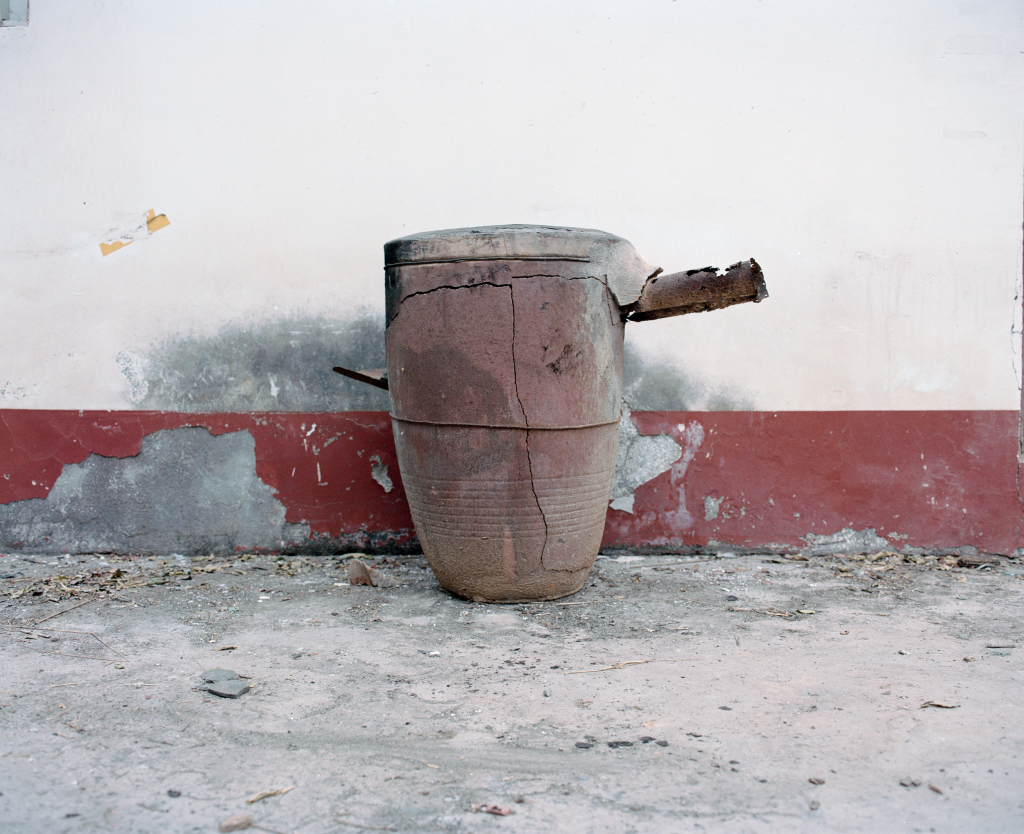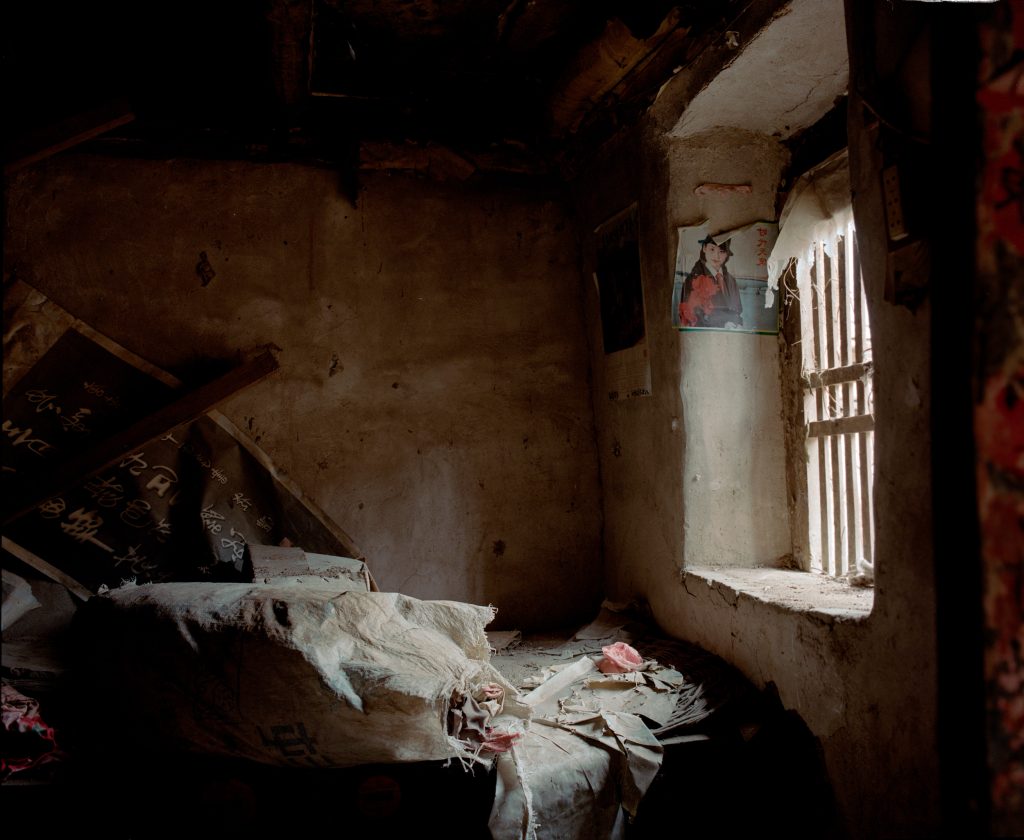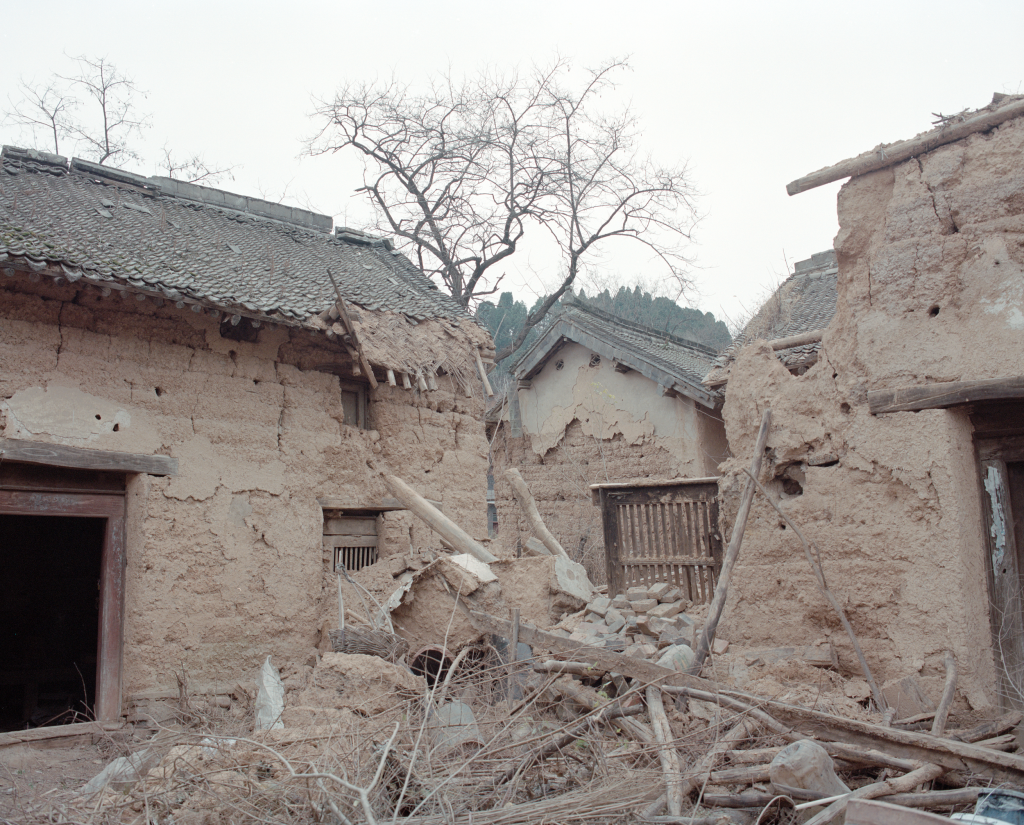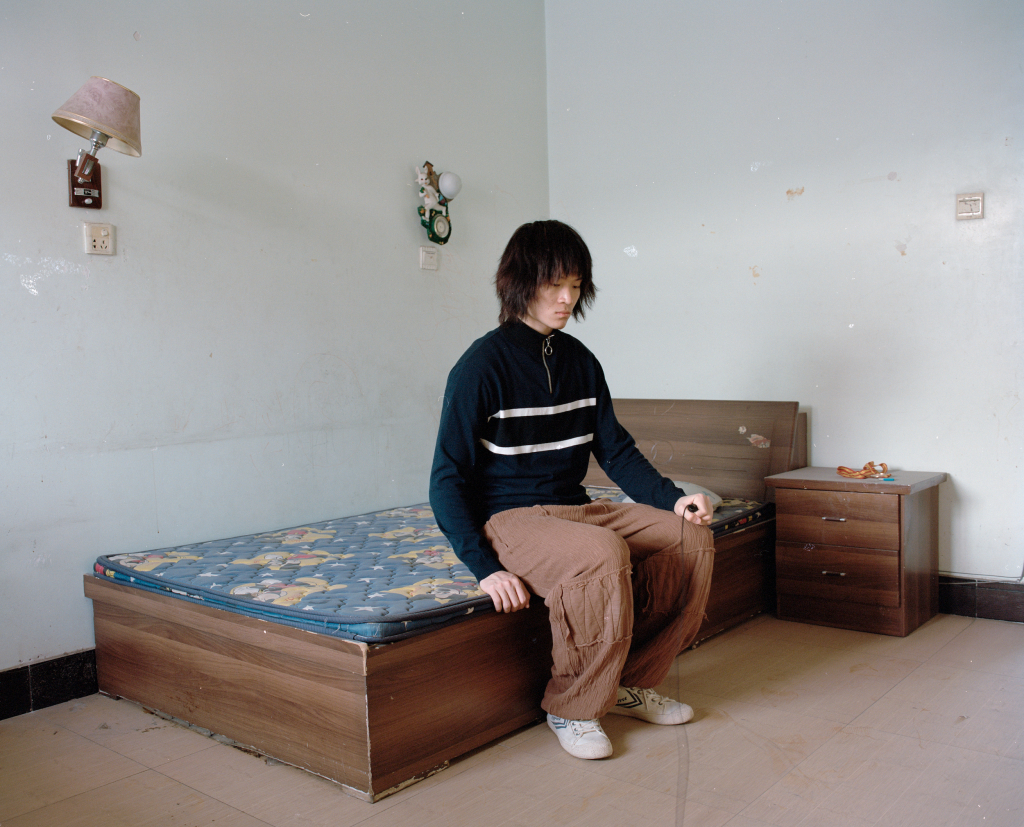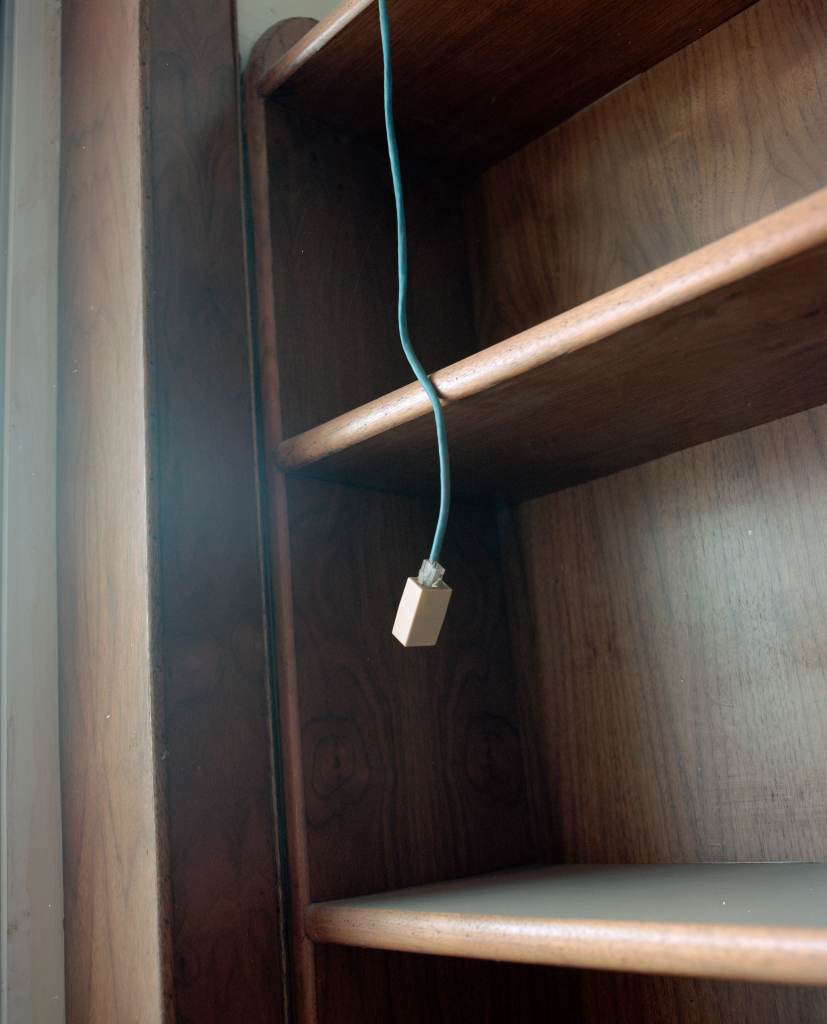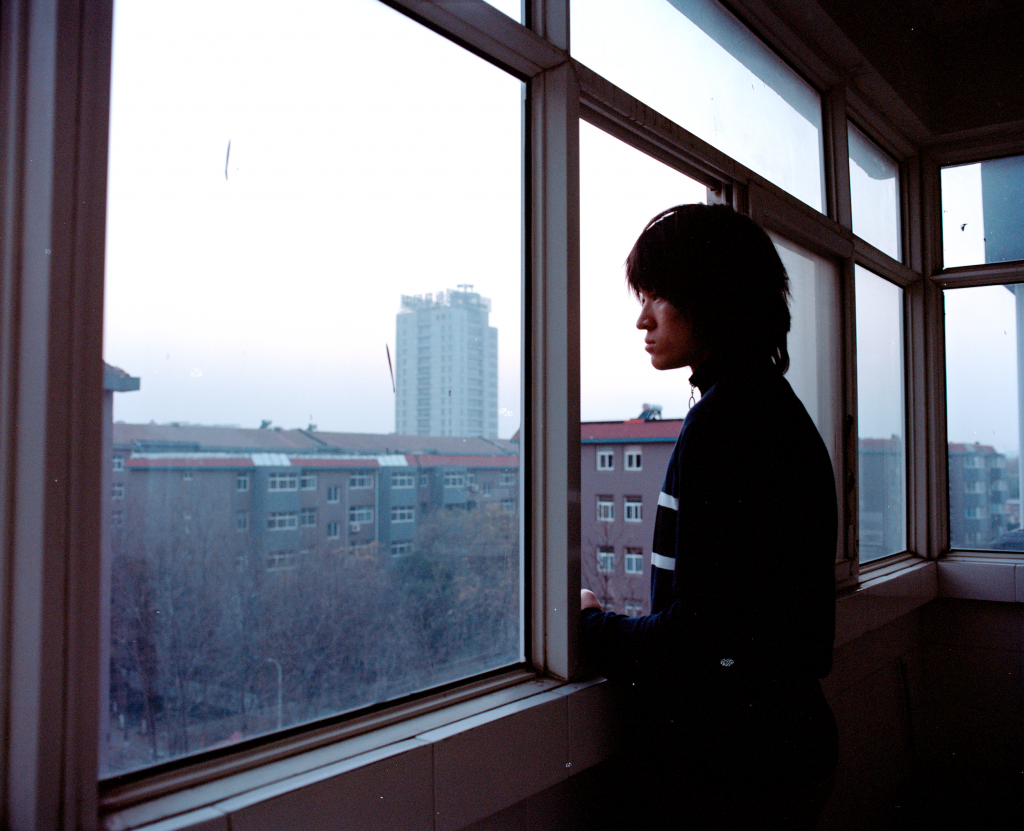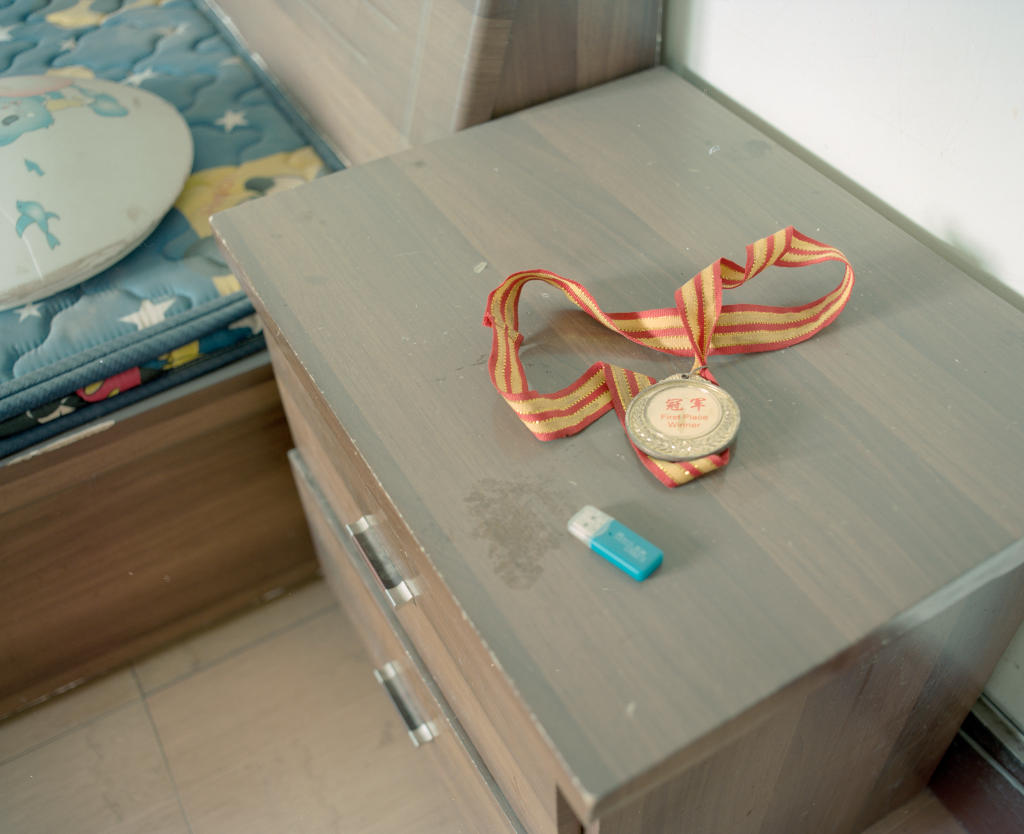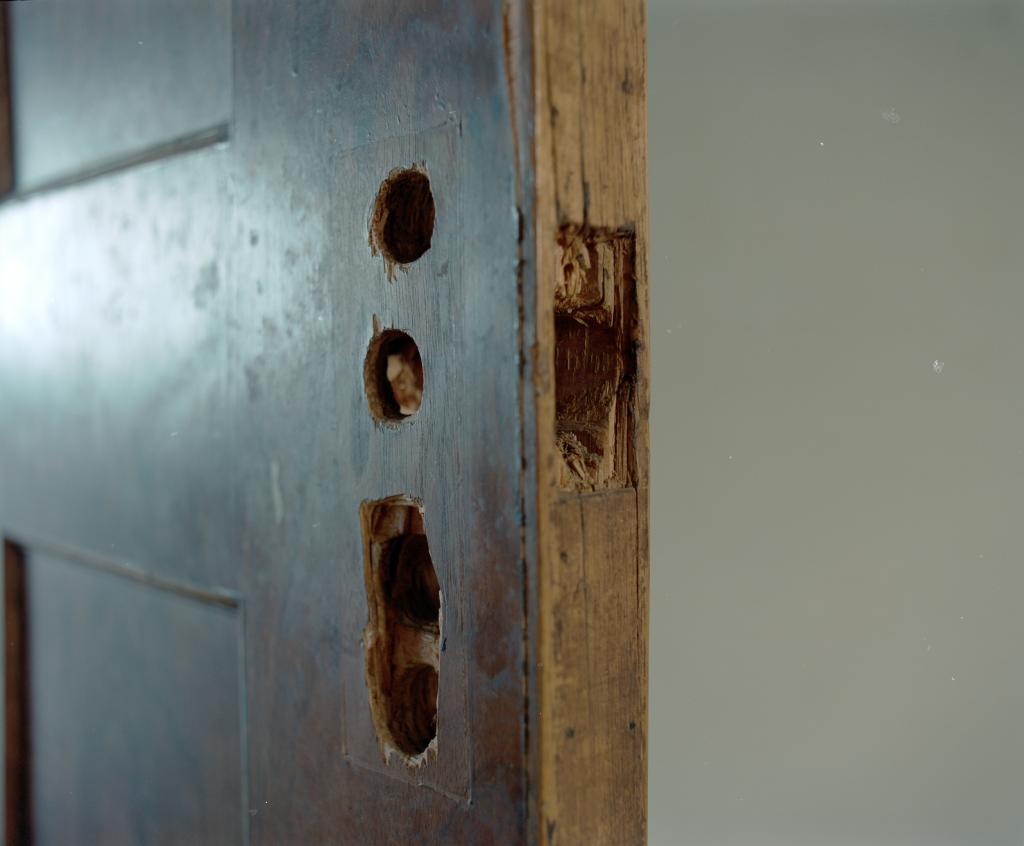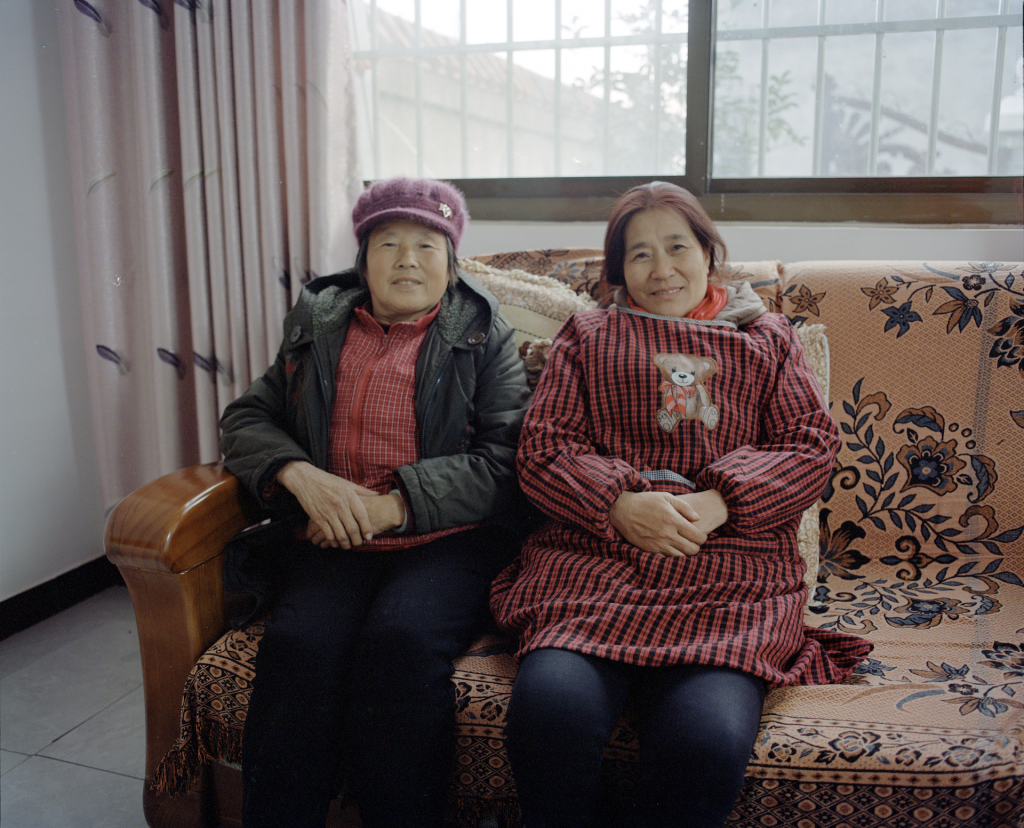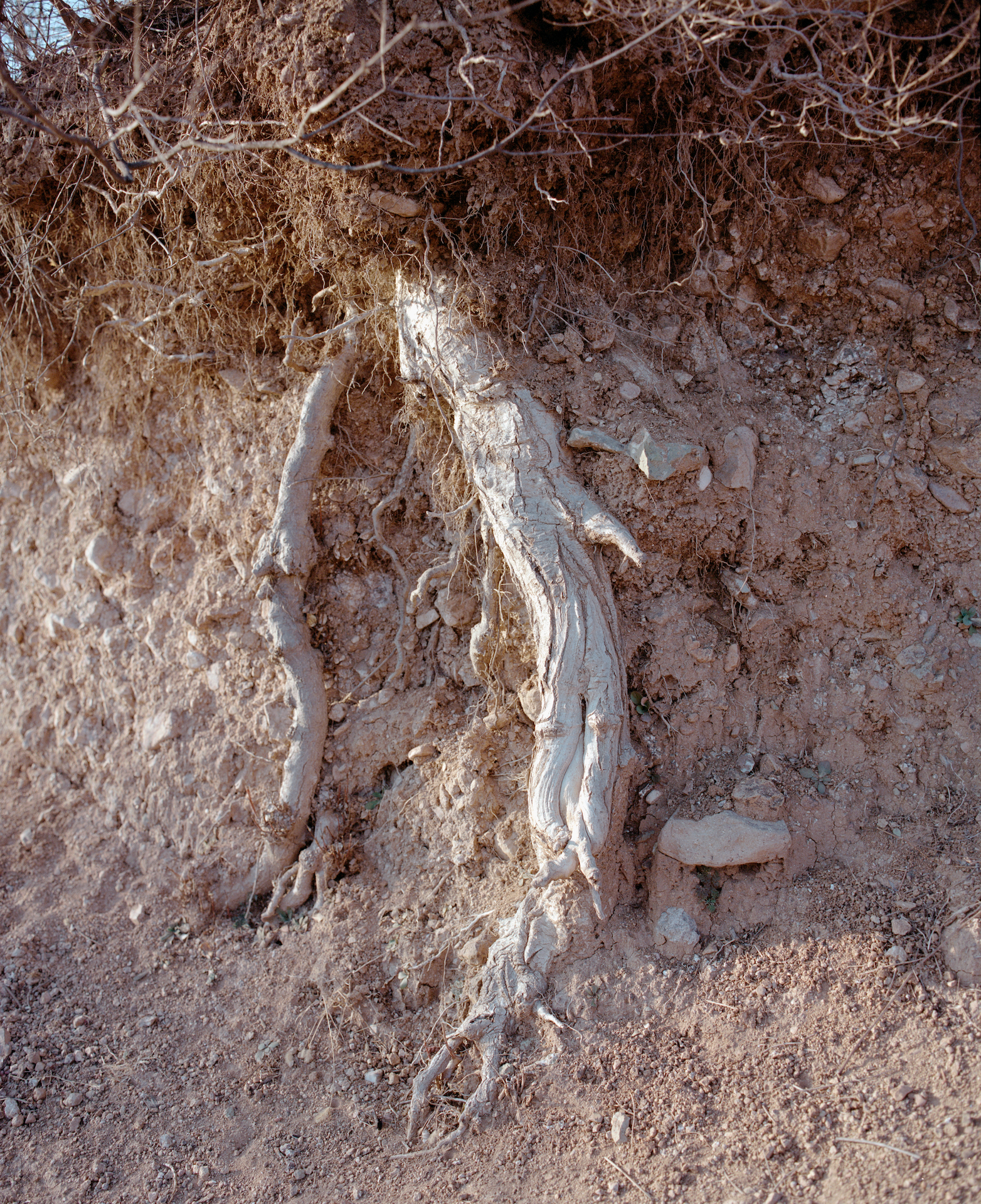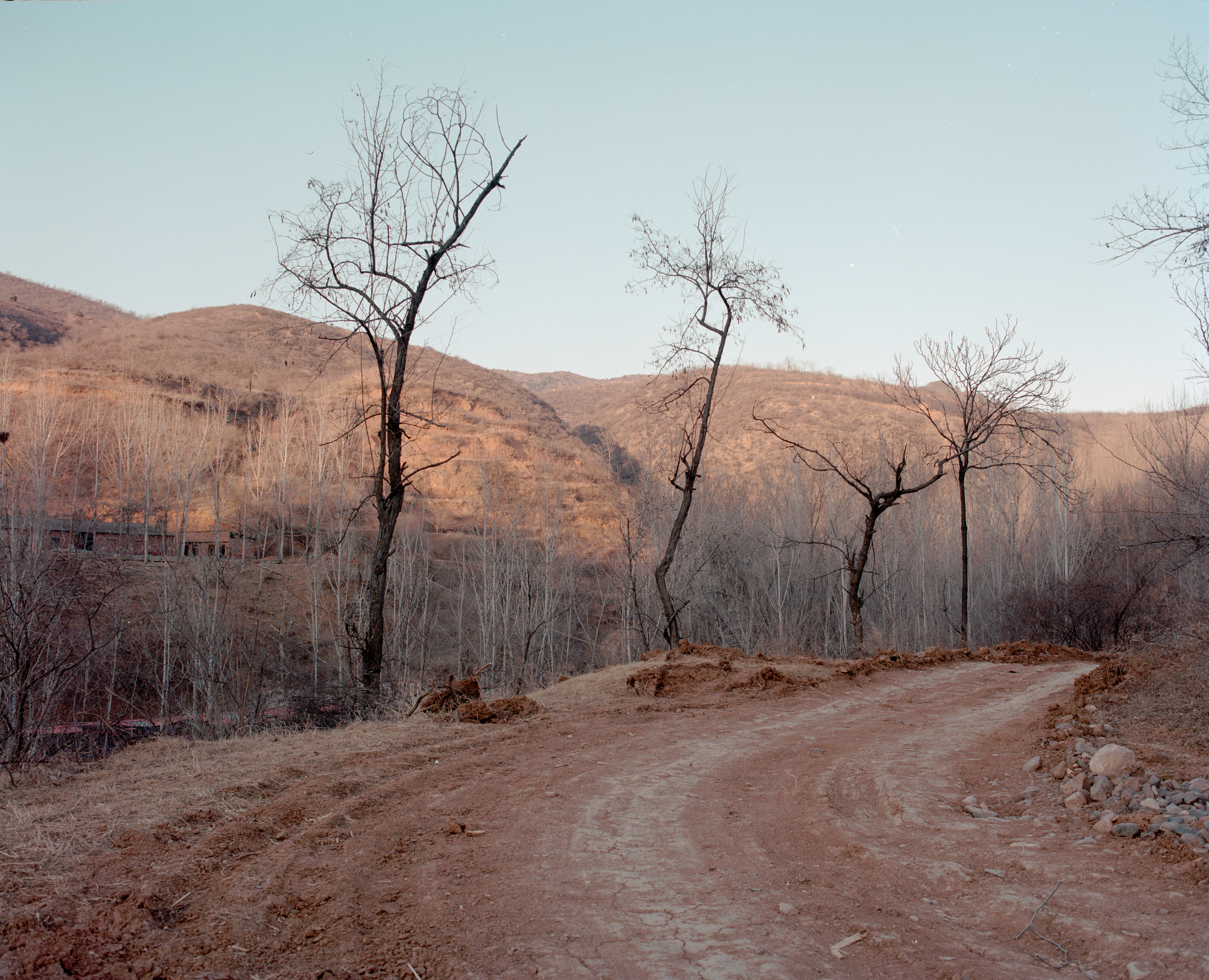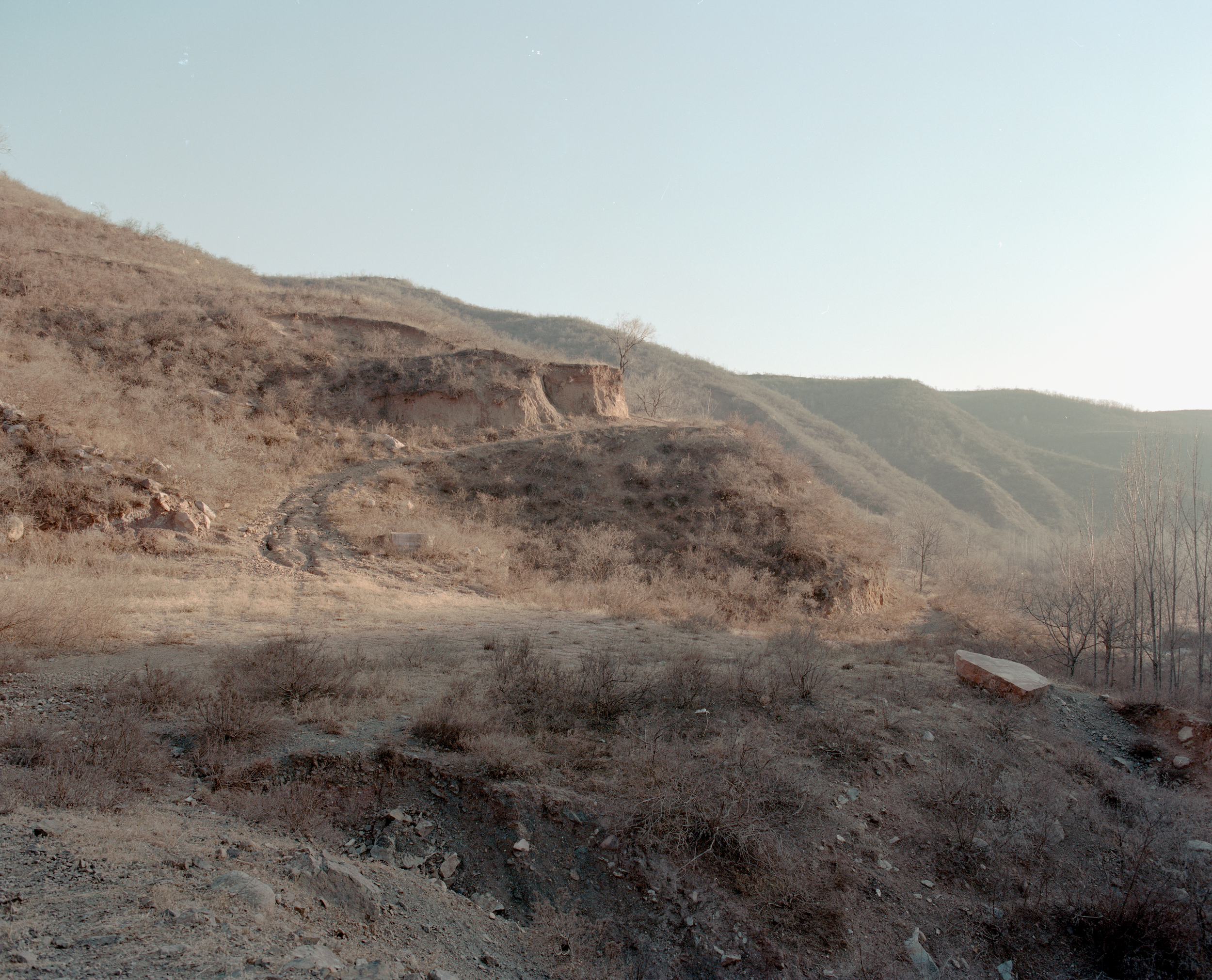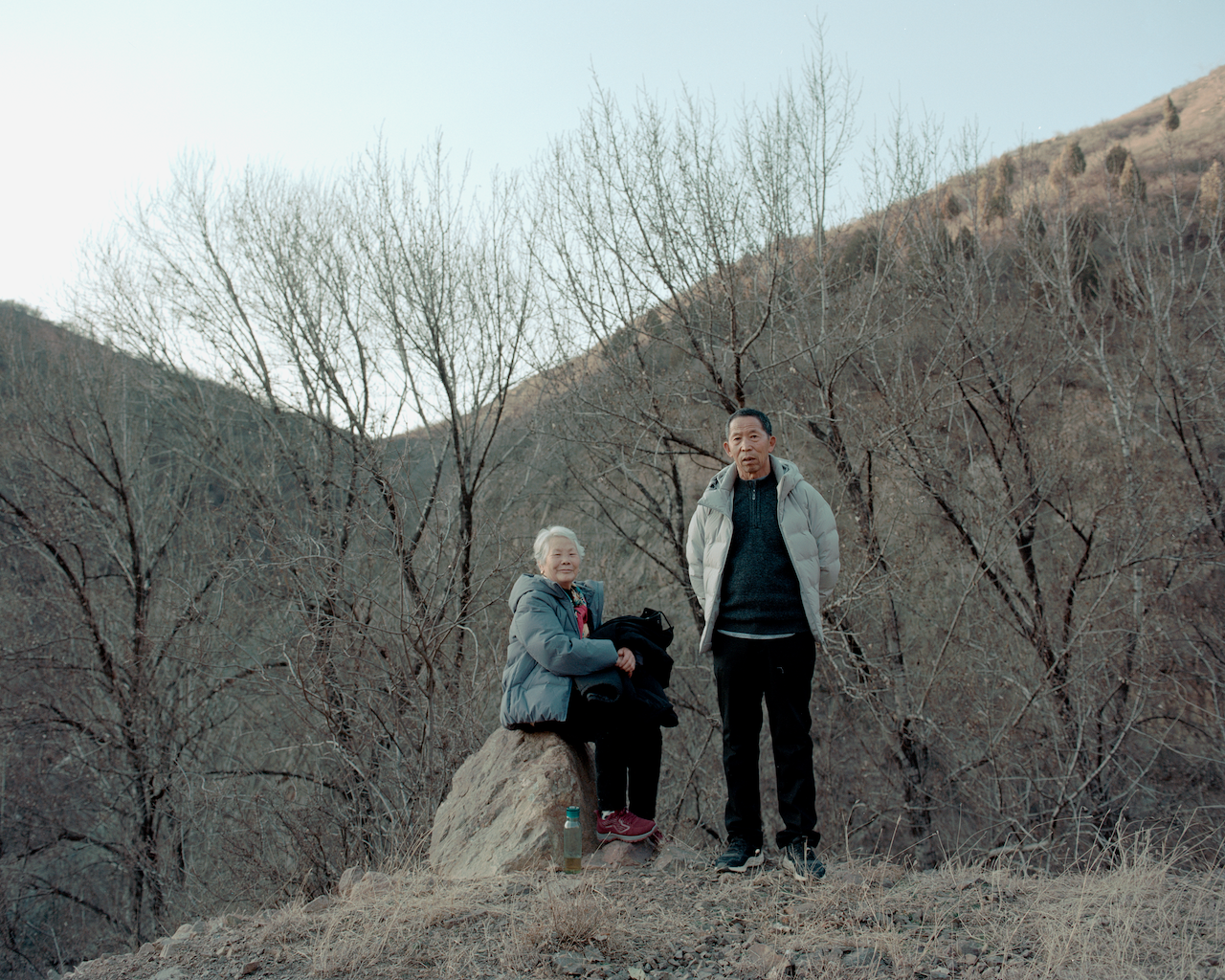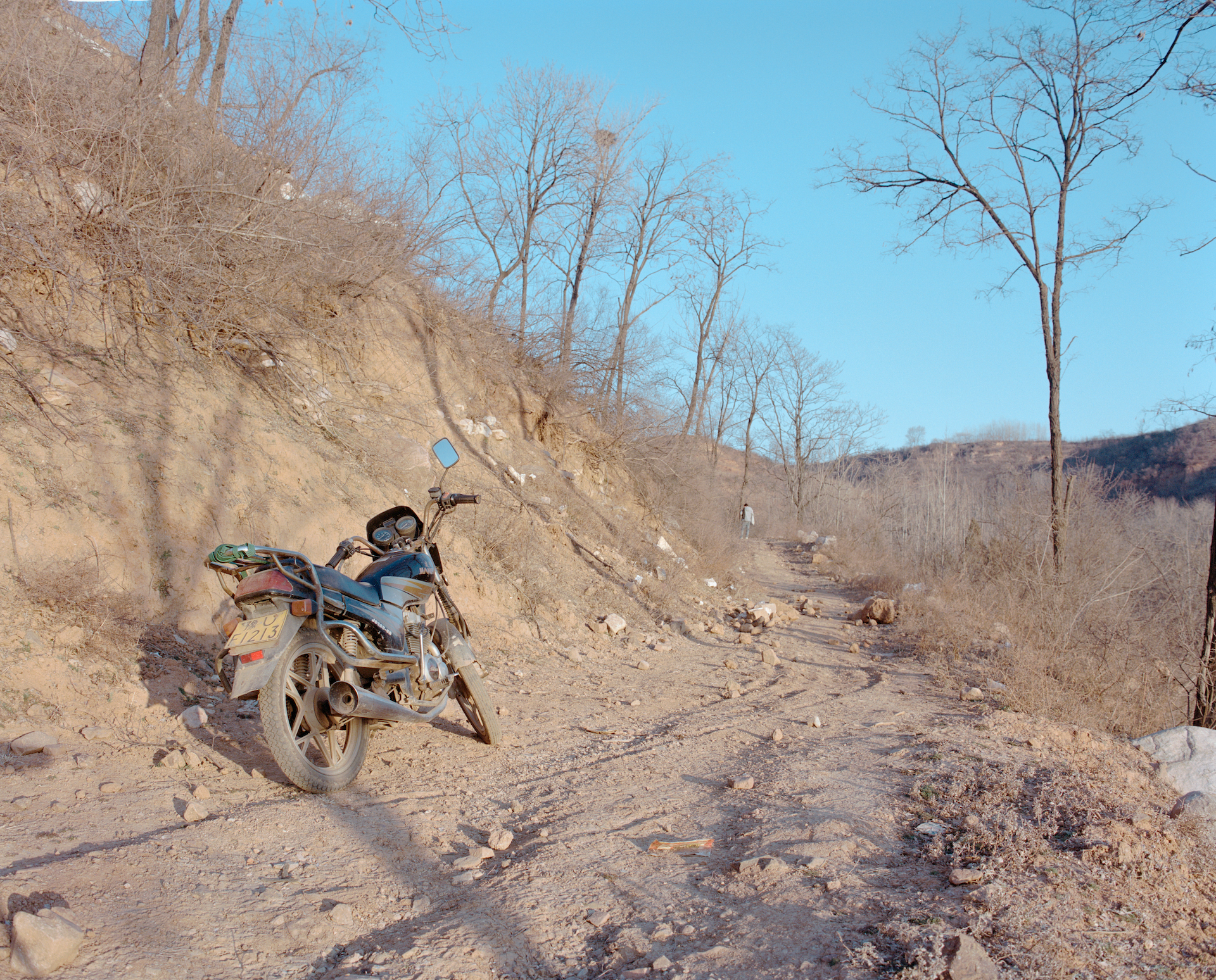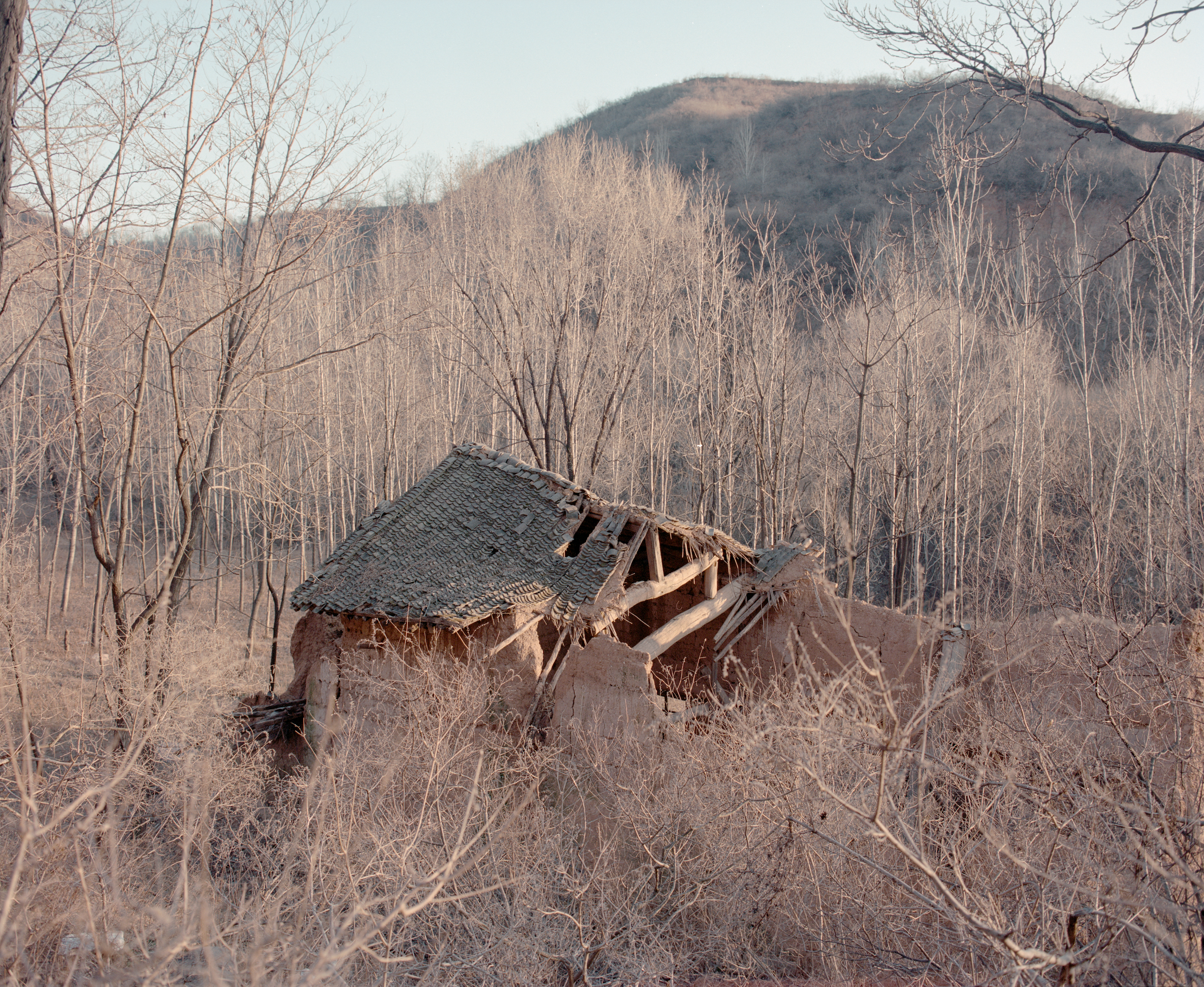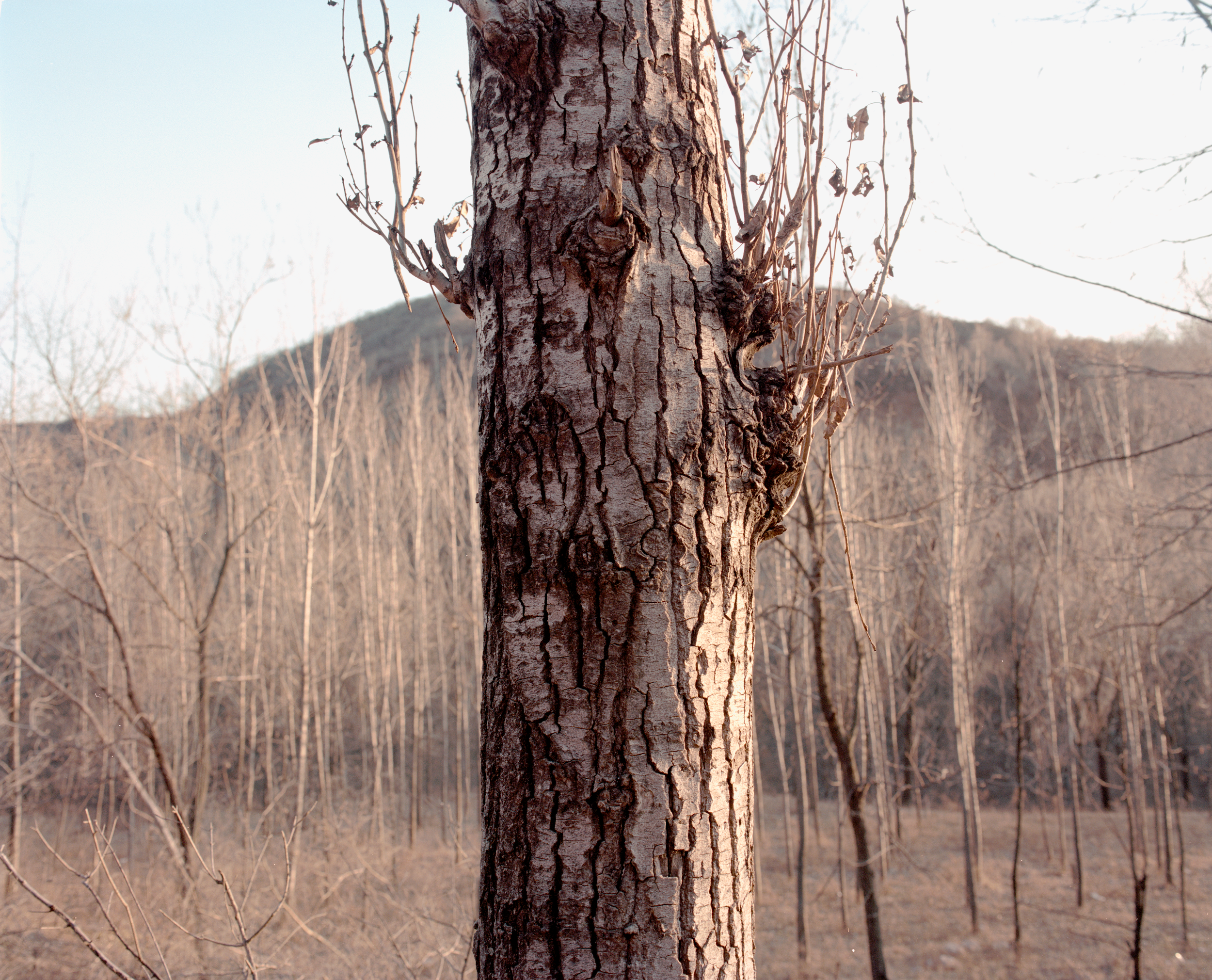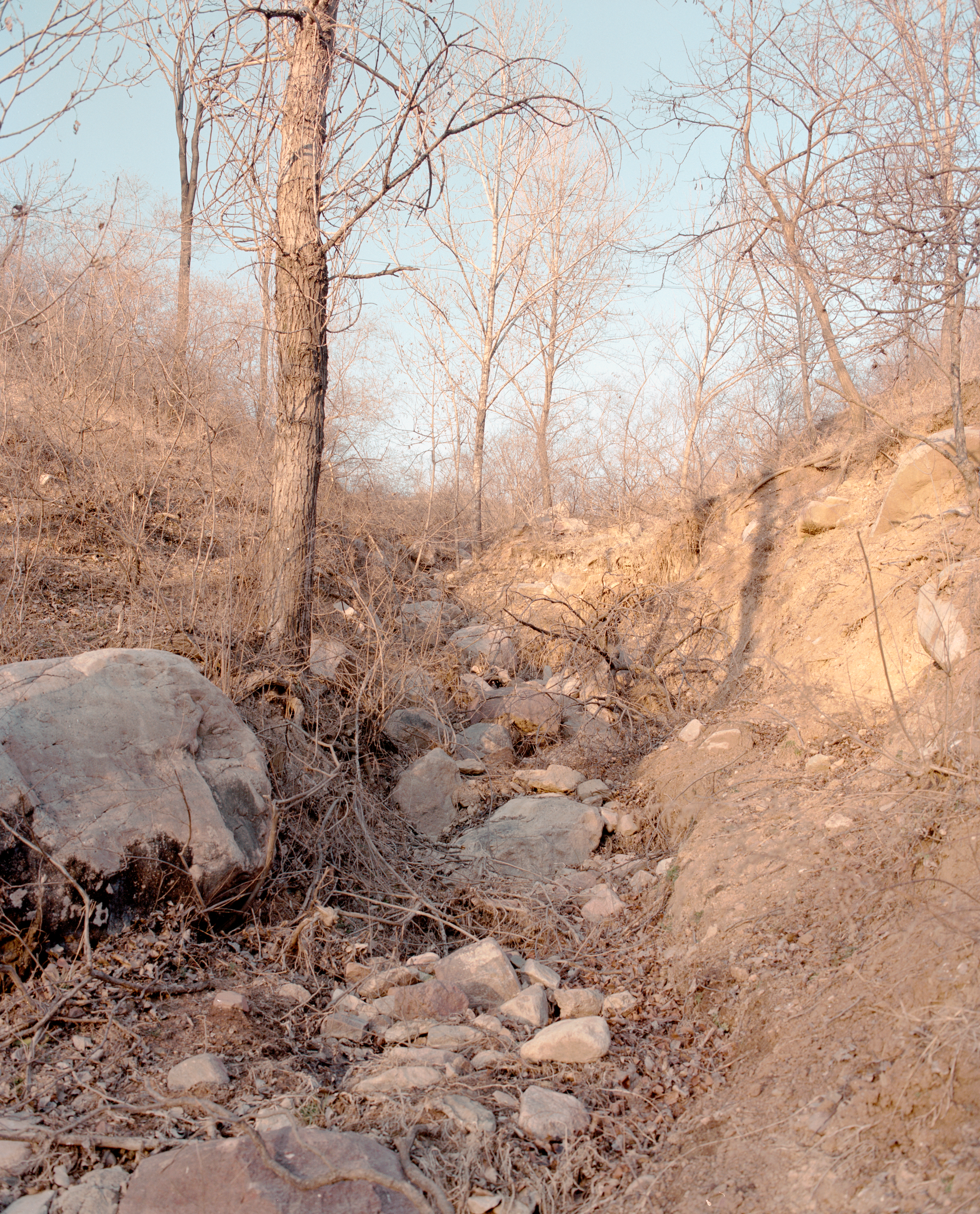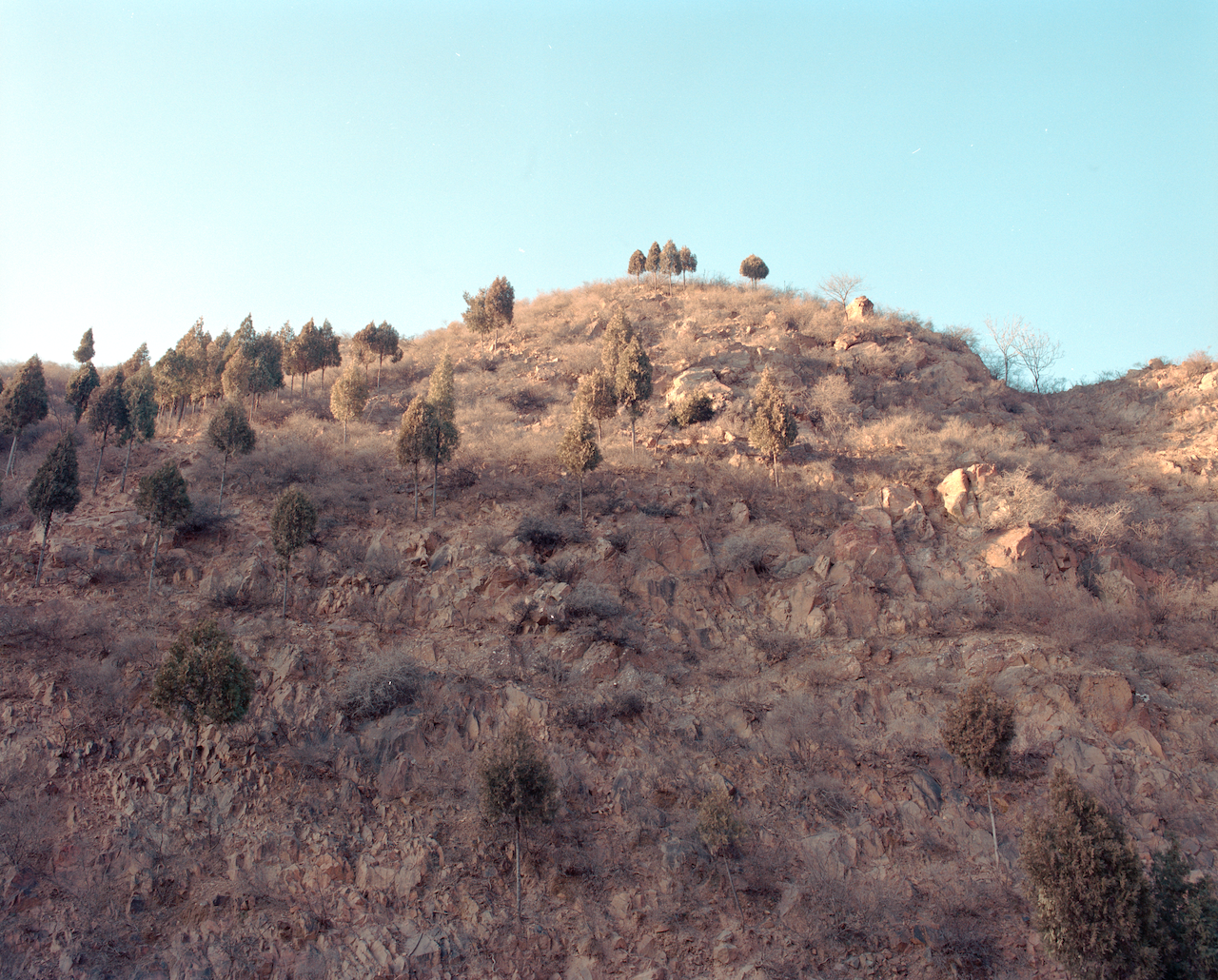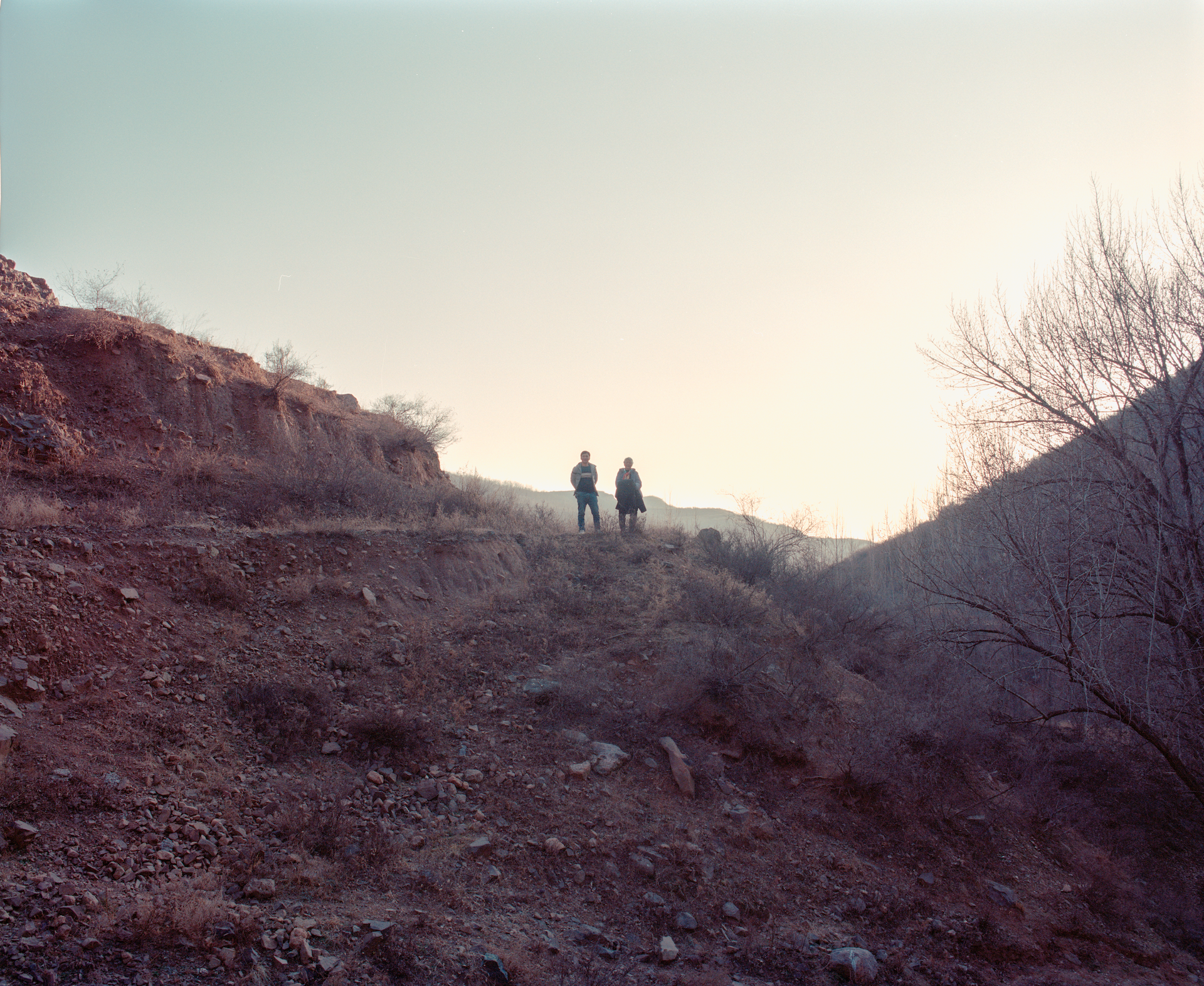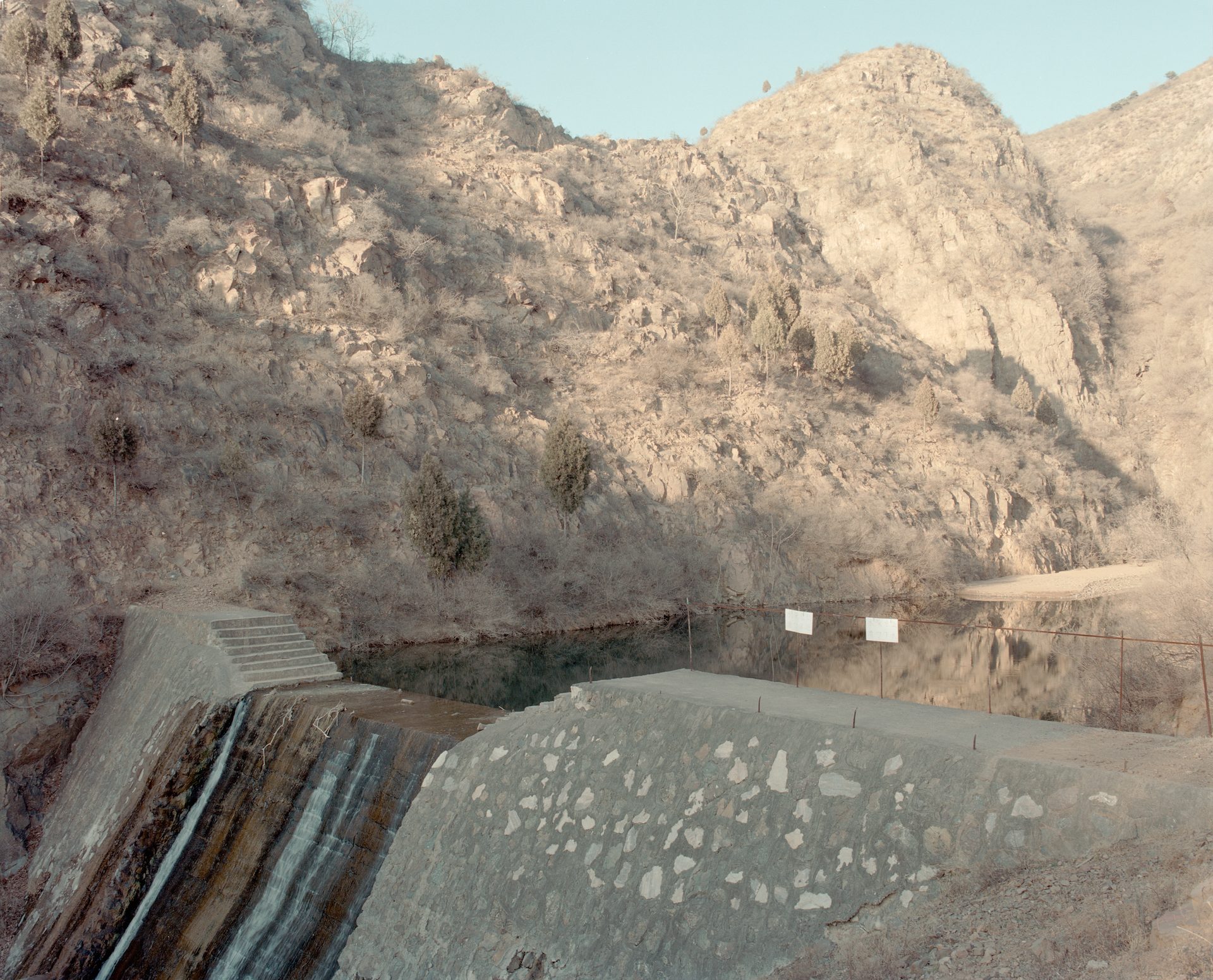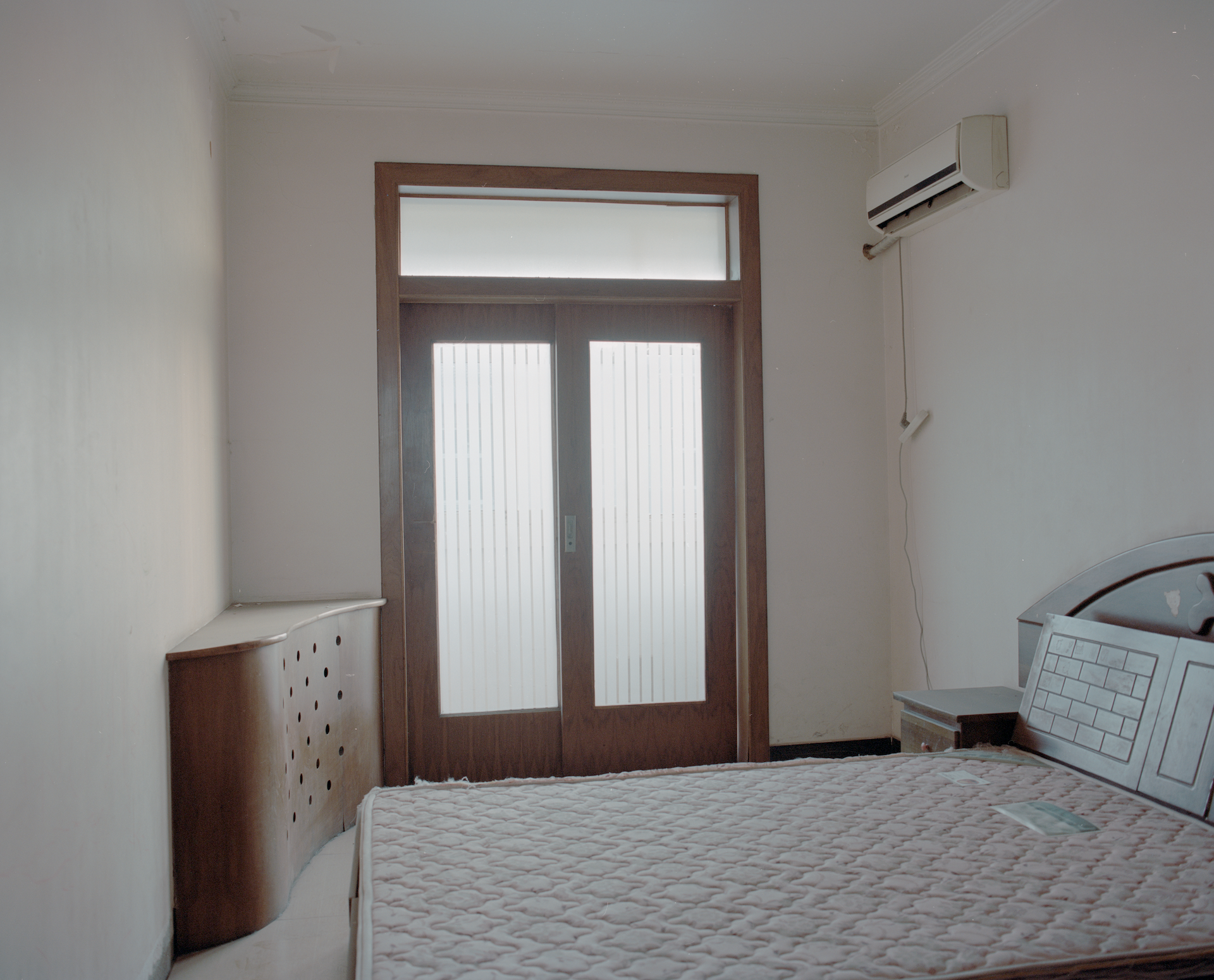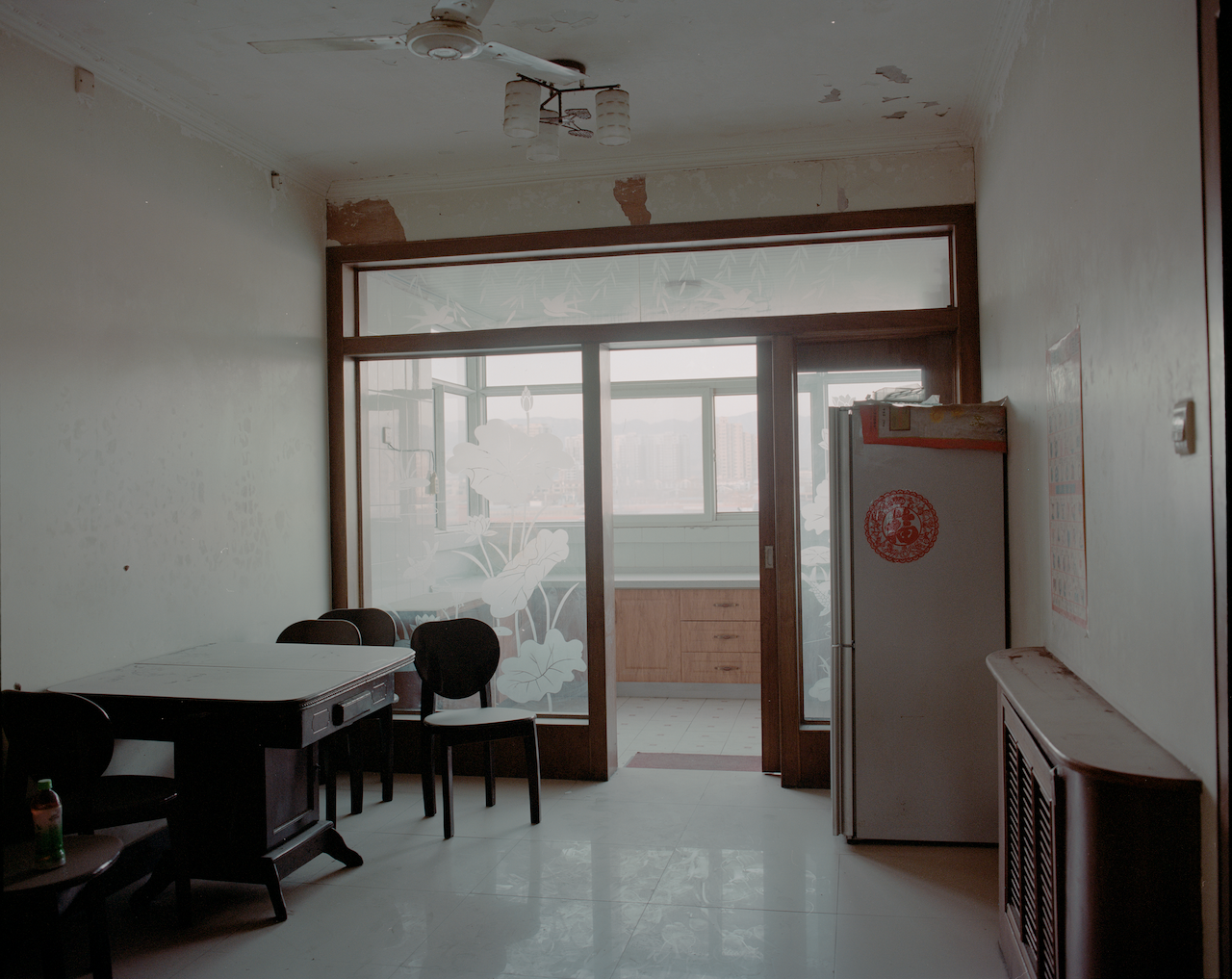The emergence of public authorities has increased the exploitation of natural resources as human societies have moved towards a more materially affluent standard of living. In this process, people have become more conscious of using all available natural resources to build their own living space, the smallest unit of which is the house. A neat batch of new timber and stone was reassembled on the land in an attempt to build an intact house in its original location. In July 2021, the village where my maternal grandmother lived was destroyed by a mudslide caused by heavy rains, and after the destruction of her old house, the village council helped to build a new one.
Three women living in dilapidated houses. They take care of their families and poultry there.
The motorbike is e v e r y w h e r e here as the common means of transport in the countryside. It is the transport vehicle that helps people to get to different living spaces and it is given basic and important meanings such as the creation of commodity exchange, the realization of schooling, and the opportunity to get medical help. And it got me thinking: are people building barriers and obstacles at the same time as they are building a living space? Are people trying to seek refuge while at the same time creating blockades and isolation?
This independent, individual living space with its memories was overwritten by collective needs. The original walls, which were mainly made of earth, were relegated to the ground. In contemporary China, compared to the most consistent style of intensive architecture in urban spaces, rural houses are more private and individual in character, with most old houses being of earth and wood construction and retaining a small family-based courtyard pattern. In 2019, the village council bulldozed the old house of my grandparents on the grounds of unified land planning.
The wood grows on the land and when it is burnt, it can be reused as fertilizer for the land.
Houses and memories are built and destroyed on this land, what remains the same is the attribution of meaning to the life it has lived. What I see in contemporary rural China is the disappearance of individuality and the spread of collective, “productive planning” across a seemingly vast space. People live “sensibly”, “prolifically”, and pass them on from generation to generation. By default, it seems, destruction is the price of survival, just as death is the price of life.
被干扰的那段时光 踹坏的门锁 拔掉的网线 窗边的走动声 悬在头上的荣誉 是否也曾一次次推倒我
